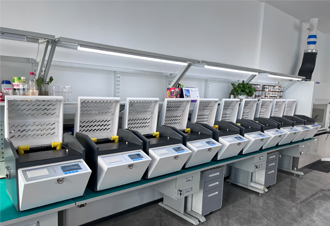 English
English



-
 Afrikaans
Afrikaans -
 Albanian
Albanian -
 Amharic
Amharic -
 Arabic
Arabic -
 Armenian
Armenian -
 Azerbaijani
Azerbaijani -
 Basque
Basque -
 Belarusian
Belarusian -
 Bengali
Bengali -
 Bosnian
Bosnian -
 Bulgarian
Bulgarian -
 Catalan
Catalan -
 Cebuano
Cebuano -
 China
China -
 China (Taiwan)
China (Taiwan) -
 Corsican
Corsican -
 Croatian
Croatian -
 Czech
Czech -
 Danish
Danish -
 Dutch
Dutch -
 English
English -
 Esperanto
Esperanto -
 Estonian
Estonian -
 Finnish
Finnish -
 French
French -
 Frisian
Frisian -
 Galician
Galician -
 Georgian
Georgian -
 German
German -
 Greek
Greek -
 Gujarati
Gujarati -
 Haitian Creole
Haitian Creole -
 hausa
hausa -
 hawaiian
hawaiian -
 Hebrew
Hebrew -
 Hindi
Hindi -
 Miao
Miao -
 Hungarian
Hungarian -
 Icelandic
Icelandic -
 igbo
igbo -
 Indonesian
Indonesian -
 irish
irish -
 Italian
Italian -
 Japanese
Japanese -
 Javanese
Javanese -
 Kannada
Kannada -
 kazakh
kazakh -
 Khmer
Khmer -
 Rwandese
Rwandese -
 Korean
Korean -
 Kurdish
Kurdish -
 Kyrgyz
Kyrgyz -
 Lao
Lao -
 Latin
Latin -
 Latvian
Latvian -
 Lithuanian
Lithuanian -
 Luxembourgish
Luxembourgish -
 Macedonian
Macedonian -
 Malgashi
Malgashi -
 Malay
Malay -
 Malayalam
Malayalam -
 Maltese
Maltese -
 Maori
Maori -
 Marathi
Marathi -
 Mongolian
Mongolian -
 Myanmar
Myanmar -
 Nepali
Nepali -
 Norwegian
Norwegian -
 Norwegian
Norwegian -
 Occitan
Occitan -
 Pashto
Pashto -
 Persian
Persian -
 Polish
Polish -
 Portuguese
Portuguese -
 Punjabi
Punjabi -
 Romanian
Romanian -
 Russian
Russian -
 Samoan
Samoan -
 Scottish Gaelic
Scottish Gaelic -
 Serbian
Serbian -
 Sesotho
Sesotho -
 Shona
Shona -
 Sindhi
Sindhi -
 Sinhala
Sinhala -
 Slovak
Slovak -
 Slovenian
Slovenian -
 Somali
Somali -
 Spanish
Spanish -
 Sundanese
Sundanese -
 Swahili
Swahili -
 Swedish
Swedish -
 Tagalog
Tagalog -
 Tajik
Tajik -
 Tamil
Tamil -
 Tatar
Tatar -
 Telugu
Telugu -
 Thai
Thai -
 Turkish
Turkish -
 Turkmen
Turkmen -
 Ukrainian
Ukrainian -
 Urdu
Urdu -
 Uighur
Uighur -
 Uzbek
Uzbek -
 Vietnamese
Vietnamese -
 Welsh
Welsh -
 Bantu
Bantu -
 Yiddish
Yiddish -
 Yoruba
Yoruba -
 Zulu
Zulu
Analysis of Compounds Using Gas Chromatography and Mass Spectrometry Techniques
Gas Chromatography-Mass Spectrometry Analysis A Comprehensive Overview
Gas Chromatography-Mass Spectrometry (GC-MS) is a powerful analytical technique widely used in various fields, including environmental monitoring, forensic science, pharmaceuticals, and food safety. This method combines the separation capabilities of gas chromatography with the identification power of mass spectrometry, allowing for the detailed analysis of complex mixtures.
Principle of GC-MS
The technique begins with the gas chromatography phase, in which a sample is vaporized and transported through a column filled with a stationary phase. As the sample passes through the column, its components interact differently with the stationary phase based on their chemical properties, such as volatility and polarity. This differential interaction results in the separation of the components, with lighter, more volatile compounds eluting earlier than heavier ones.
Once separated, the individual components are introduced into the mass spectrometer. In the ionization chamber of the mass spectrometer, the molecules are ionized, typically using electron impact (EI) or chemical ionization (CI) methods. This ionization process converts the molecules into charged particles, which are then accelerated through an electric field and focused into a beam.
In the mass spectrometer, ions are separated based on their mass-to-charge ratio (m/z) in the mass analyzer. The resulting data provides a mass spectrum for each component, which serves as a unique fingerprint allowing for the identification and quantification of the analytes present in the original sample.
Applications of GC-MS
GC-MS is an invaluable tool in numerous applications. In environmental science, it is employed to detect and quantify volatile organic compounds (VOCs) in air, soil, and water, helping to monitor pollution levels and assess environmental health. The ability to analyze trace levels of contaminants makes it indispensable for regulatory compliance and environmental remediation efforts.
gas chromatography mass spectrometry analysis

In forensic science, GC-MS is crucial for drug testing and toxicological analysis. It can identify substances in biological samples such as blood or urine, aiding in criminal investigations and determining cause of death in toxicology reports. The specificity and sensitivity of GC-MS allow for the detection of even minute quantities of drugs and their metabolites.
The pharmaceutical industry relies on GC-MS for quality control and the analysis of drug formulations. It is used to monitor the purity of active ingredients and detect impurities that may arise during synthesis or storage, ensuring that products meet stringent safety and efficacy standards.
In food safety, GC-MS is utilized to monitor pesticide residues, flavor compounds, and potential contaminants in food products. This is essential for compliance with food safety regulations and ensuring that consumers are not exposed to harmful substances.
Benefits and Limitations
One of the main advantages of GC-MS is its high sensitivity and specificity, allowing for the detection of compounds at very low concentrations. It also provides structural information about molecules, making it easier to identify unknown samples.
However, GC-MS does have limitations. It is best suited for volatile and thermally stable compounds; thus, non-volatile or thermally labile substances often require alternative analytical approaches. Additionally, the complexity of the data generated can necessitate skilled interpretation and analysis.
Conclusion
In summary, Gas Chromatography-Mass Spectrometry analysis is a versatile and powerful tool in modern analytical chemistry. Its applications span various industries, providing critical insights into sample compositions that are essential for health, safety, and environmental protection. As technology advances, the capabilities of GC-MS will continue to expand, further enhancing its role in scientific research and industry applications.
-
Testing Equipment Industry Sees Major Advancements in 2025: Smart & Precision Technologies Lead the WayNewsJun.06,2025
-
Applications of Direct Current Generators in Renewable Energy SystemsNewsJun.05,2025
-
Hipot Tester Calibration and Accuracy GuidelinesNewsJun.05,2025
-
Digital Circuit Breaker Analyzer Features and BenefitsNewsJun.05,2025
-
Benefits of Real-Time Power Quality Monitoring Devices for Industrial EfficiencyNewsJun.05,2025
-
Earth Fault Loop Testing in High-Rise Building Electrical SystemsNewsJun.05,2025



